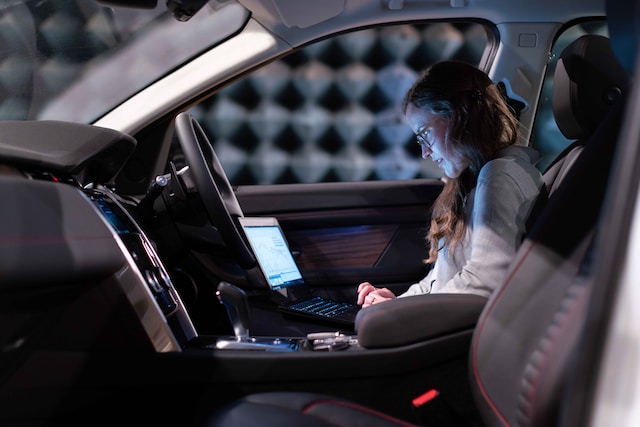The future of eco-friendly vehicles

EVs, or electric vehicles, are vehicles powered solely by electricity as opposed to their fuel alternatives. They’re sleeker and slowly improving as they become commonplace on the market. All-in-all, it’s starting to look like EVs may be the future of transportation. What does that mean?
There’s a lot of appeal when it comes to eco-friendly vehicles. As environmentally savvy alternatives become more and more trendy, we start to learn more and more about how these vehicles can benefit our lives, our wallets, and the environment. How will eco-friendly vehicles shape our future? Read on for Panda7’s hot take on the future of eco-friendly vehicles.
Eco-friendly vehicles may help you save on taxes and on fuel
The current day costs of an electric vehicle (on average) run between $30,000-$40,000, although higher-end models can range between $100,000-$180,000. As such, EVs tend to be more expensive to purchase than their gas-powered equivalents.
In the future, we’d hope that eco-friendly vehicles’ upfront cost begins to decline as more and more of these cars become available on the market. But, as it stands today, EVs can help owners save on fuel costs in the long run. This may be enough to override the overall upfront costs, depending on how much your EV model goes for in today’s market. Today, gas is more expensive than ever, making it far more appealing to purchase an EV alternative. In addition, countries like Canada have introduced additional taxes for cars that are deemed “fuel inefficient” (and countries like France, Germany, and Norway have even proposed a rule to ban the sale of new gas-powered vehicles.)
Electric vehicles also need less engine maintenance, which reduces the overall cost of upkeep and repairs with time. All in all, the future of eco-friendly vehicles looks greener – not just for the environment, but for our wallets as well.
Future driverless vehicles may make our roads safer
Nowadays, we see a lot of electric cars on the road. We see a lot of hybrids, too. They’re becoming commonplace, and while they certainly are the future, there’s something to be said about the long-awaited arrival of driverless cars. The next big thing is automated driving – and here’s how it could help:
With the addition of automated vehicles on the road, the chances of human error could be greatly reduced. Self-driving cars are much safer, being programmed to strictly follow traffic laws. While accidents may still happen, they would be attributed to manufacturer error and not to the drivers and/or passengers. Moreover, with increased efficiency on the roads, we could severely reduce fuel consumption, which could greatly benefit the environment.
Auto insurance will be forever altered
While we’re not entirely sure how auto insurance will be impacted by the inclusion of EVs and especially driverless vehicles, we know that a lot of insurance companies will need to change the way they write insurance to keep up with the trends. Currently, a lot of EVs are more expensive to restore or replace as there aren’t enough parts available to do repairs, but many insurance companies will offer discounts for EVs and hybrid vehicles. This “green” discount may or may not offset the increased replacement cost.
Driverless vehicles are the biggest enigma. Because accidents will then be attributed to manufacturer error rather than human, it’s difficult to say how premiums will be calculated or who will be considered “at-fault” in an accident – if fault is ever determined at all. However it’s safe to say that we may save on costs with driverless vehicles, especially as there will be fewer accidents and fewer traffic violations.
How to stay eco-friendly without buying an EV
As it stands today, electric vehicles are still significantly more expensive than our regular gas-powered vehicles, and not all of us can justify their purchase. As we wait for upfront costs to die down, we can still do our part in reducing the amount of fossil fuels being burned on the regular. We can minimize our trips and stick to only necessary travel as well as reduce our idling time. While it’s tempting to want to keep the car warm during the winter time (or cool during the summer,) this only adds to the unnecessary gases being produced and contaminating our air. Turn off your vehicle if you are idling for more than 10 seconds at a time.
You should also try your best to stay on top of maintenance checks and regularly scheduled servicing. This ensures your vehicle is kept in great condition and remains at its peak efficiency.
And finally, this should go without saying, but driving less altogether reduces the fuel you consume. Opt for public transport where possible, carpool with coworkers, or ditch that unnecessary trip to the grocery store and walk instead. It’s easier, helps you stay healthy, and helps you reduce your carbon footprint! Panda7 likes to do its best to stay green as well, which is why we’re planting 1 tree for every quote we receive and 3 for every policy purchased.
Help us give back by requesting an auto quote with us today!

